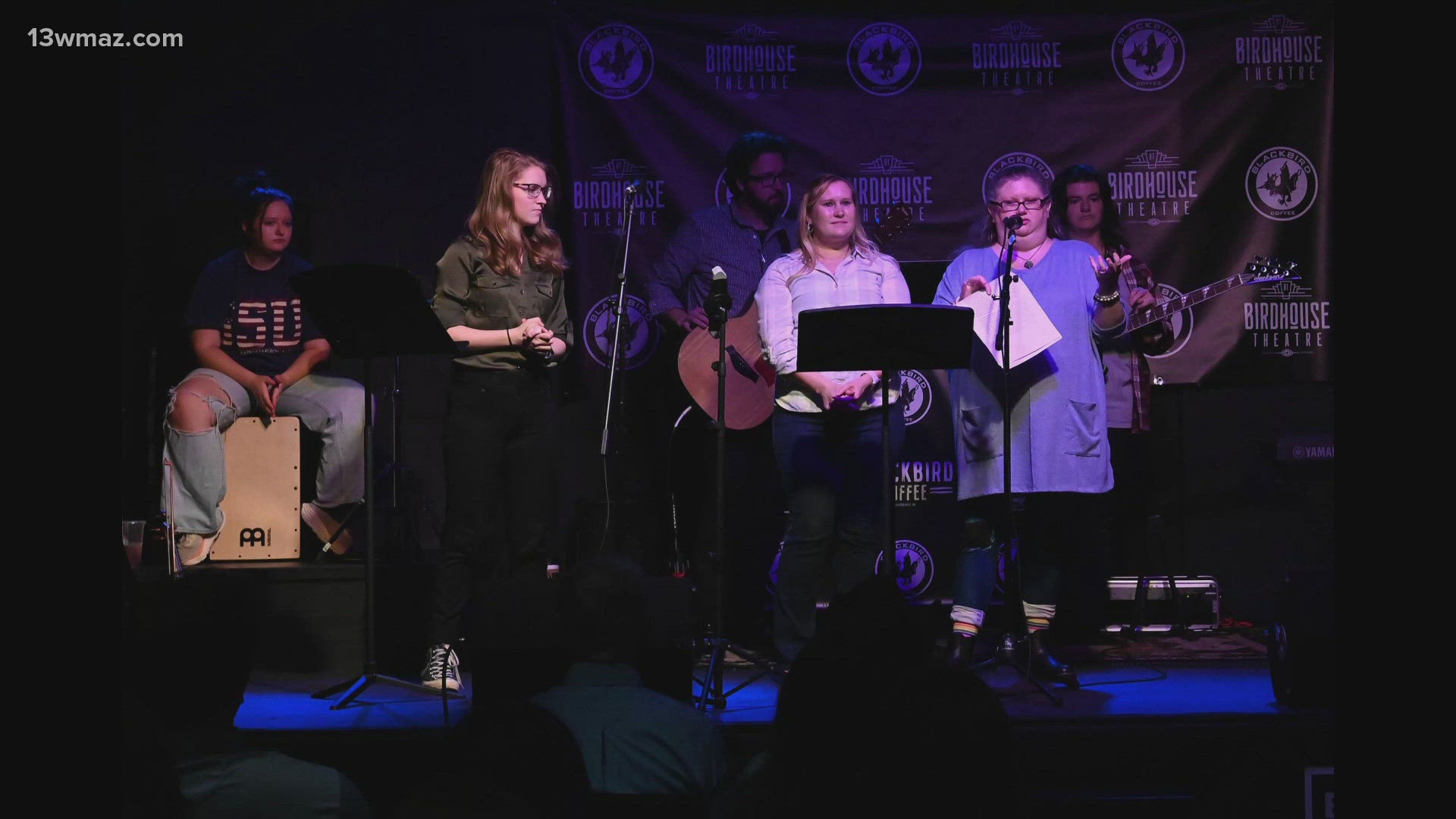MILLEDGEVILLE, Ga. — For the past four years, Georgia College and State University researchers have studied veterans and their mental health.
This year, they focused on post-traumatic stress disorder (PTSD) and two tools that can make a difference in their treatment: incorporating music and pictures into their therapy.
David Carr, who served in the army, said he loved the idea of expressing himself through pictures and songs.
"This was a very unique technique and protocol to send us home, asking us to try to define what we felt our experience in the military was," he says.
As part of the study, students researched a team of veterans and learned about who they are as people and as veterans.
Stephanie Jett is an associate professor of psychological science and she wanted to research veterans and what they go through. Laura Peebles is an associate professor of music therapy. They say they decided to work together to find a therapeutic way to help veterans express how they feel and what their true identity is.
Peebles says she helped veterans to find music that related to how they were feeling.
Then, on Nov. 12, they gathered at Black Bird Coffee with students and veterans. There, they never imagined it would be as successful as it was.
The veterans came out to the coffee shop and talked about the songs they chose and explained how they felt. Some even performed their songs.
Carr was one of them.
He also said it was special because his daughter played the violin to his song.
The Georgia College researchers say it all started as a way to give veterans a voice to who they really are and how they struggle with PTSD and other things.
“We need veteran participants. We had seven originally that stepped up and said, 'I’m here, let's do it.' We met and we talked and they said this is amazing,” Jett said.
The process started by Jett interviewing her husband, a veteran himself, on what could be beneficial for other veterans.
They said they decided to do their research through lyric analysis and photo voice, which is selecting images to answer questions.
Jett says it also looked like the professors and students listening to these veterans actively.
“Our end goal is amplifying their voices and empowering them to take ownership in their own identity and how they present themselves to the community,” Jett says.
Lauren Erst-Fortin said this is an amazing experience.
"Overall just how they have reacted to this experience. Like on the exhibit the other day one of the veterans came and hugged me," she says.

